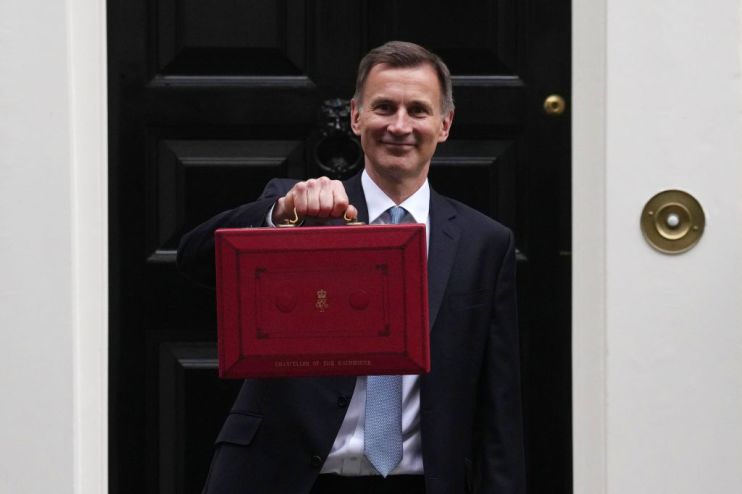Jeremy Hunt: UK not ‘in a position’ to know if it can cut taxes before election

The government is currently not “in a position to know whether we’re going to have any headroom at all” to cut taxes in the run up to the next election, Jeremy Hunt claimed today.
Speaking at the British Chambers of Commerce’s (BCC) annual conference, the Chancellor said he and Prime Minister Rishi Sunak “have our role in government” to prevent inflation spiralling out of control by avoiding over stimulating the UK economy.
His comments come as research released earlier this week by the Institute for Fiscal Studies revealed around one in five taxpayers will be paying the higher 40 per cent income tax rate in just a few years as a result of the Conservatives freezing tax bands for six years.
That measure will amount to the largest tax hike since 1979 when VAT was doubled to 15 per cent, the IFS calculated.
Some of those tax rises are needed “in order to bring down inflation,” Hunt said.
Responsibility to keep inflation under control and at two per cent was handed over to the Bank of England in 1997. The government has no obligation to tame prices, though reducing spending and raising taxes should in theory tame price rises by knocking demand.
Speculation has mounted that Hunt and Sunak will offer up tax cuts in their election manifesto in a bid to win over voters.
A sharp reduction in international energy prices, better than expected GDP growth, among other factors, has kept borrowing lower than the Office for Budget Responsibility forecast at the March budget.
Office for National Statistics numbers last month found the UK borrowed about £13bn last year less than the OBR projected in March, sparking a wave of City analysts to predict Hunt will offer tax cuts in the run up to the next general election – which must be held by January 2025 – to drum up support for the Conservatives, who’ve lagged Labour in the polls for about a year.
Hunt said today he is uncomfortable with the current upward trajectory of taxes in the UK. “We have to get our taxes down,” he said, adding he plans to make the country’s business taxation regime more “competitive” in the future.
Corporation tax last month jumped to 25 per cent from 19 per cent, although Hunt cushioned some of that rise by allowing firms to fully expense investment spending from their tax bills for three years.
Alluding to his decision to scrap nearly all of former Prime Minister Liz Truss’s £45bn of unfunded tax cuts, Hunt said financial markets “will punish us” if he embarked on reckless government spending and tax decisions.
Gilt yields surged to a two decade high and the pound slumped to its lowest level ever against the US dollar after Truss’s September mini-budget. That statement wasn’t marked by the OBR, spooking international investors.
The Chancellor also reasoned that the government’s tax rises are needed to help the Bank of England tackle inflation, which has raced to multi-decade highs over the last year and been in the double-digits since last summer. It is running at 10.1 per cent.
“Inflation is a tax for which you get nothing back for in return,” he said, adding the government will “stick” to its plan to halve inflation by the end of the year, which the Bank thinks it will just about fulfil.
Last week, the Bank raised its inflation forecasts substantially to around five per cent by the end of the year and also projected it won’t fall back to its two per cent target until 2025.
It also hiked interest rates for the twelfth time in a row, by 25 basis points to 4.5 per cent, their highest levels since October 2008. Markets reckon Governor Andrew Bailey and co will lift at least one more time and that cuts won’t come until next year.